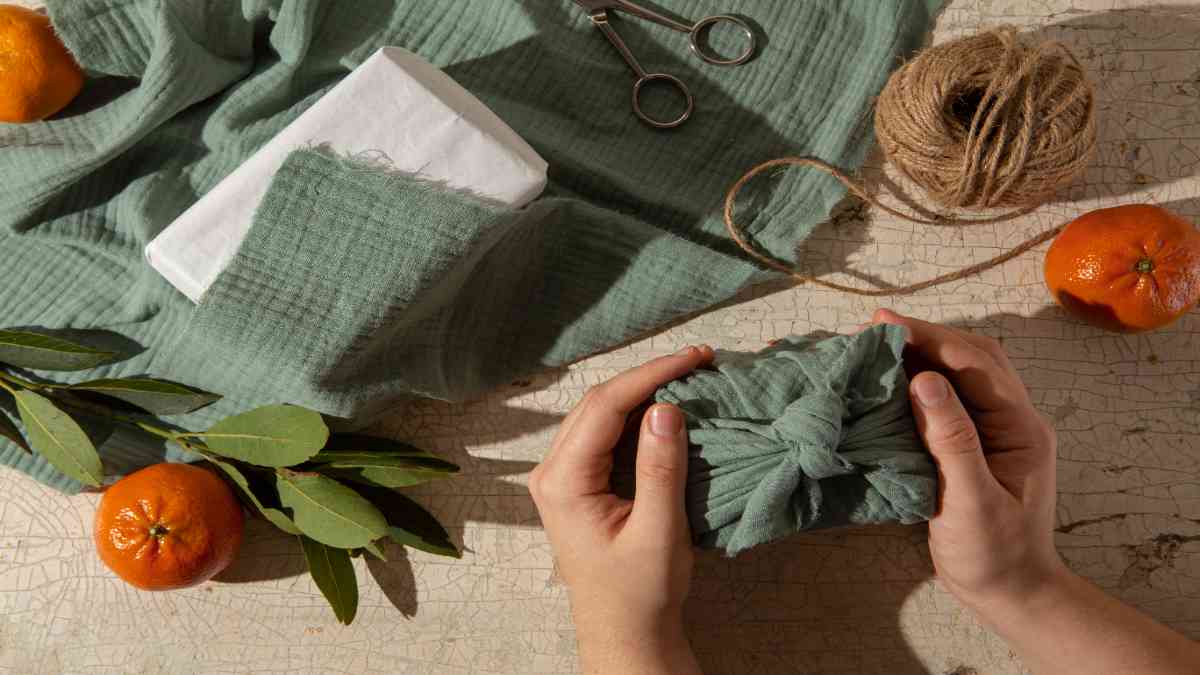Introduction
Sustainable fashion is on the rise, and Simple Life Fabrics is leading the way by offering eco-friendly textiles for conscious consumers. Whether you’re a sewing enthusiast, a DIY crafter, or someone looking for sustainable fabric alternatives, this guide will help you understand everything about Simple Life Fabrics and why they are a great choice for a greener lifestyle.
What Are Simple Life Fabrics?
Simple Life Fabrics specializes in high-quality, sustainable, and ethically sourced textiles. Their collection includes organic cotton, bamboo fabrics, hemp materials, and recycled textiles, making them a go-to brand for environmentally friendly sewing and fashion projects.
Why Choose Simple Life Fabrics?
- Eco-Friendly Materials – All fabrics are sourced with sustainability in mind, reducing environmental impact.
- Ethically Produced – The company ensures fair wages and ethical manufacturing practices.
- Durable and Versatile – High-quality fabrics that last longer and suit multiple applications.
- Chemical-Free Processing – Avoids harmful dyes and synthetic treatments.
Popular Fabrics Offered by Simple Life Fabrics
1. Organic Cotton
Organic cotton is grown without pesticides, making it safer for the environment and the wearer. It is soft, breathable, and perfect for clothing and home textiles.
2. Bamboo Fabric
Bamboo is a sustainable plant that grows rapidly without excessive water use. Bamboo fabric is known for its silky texture, moisture-wicking properties, and antibacterial benefits.
3. Hemp Fabric
Hemp is one of the most durable and eco-friendly textiles available. It is biodegradable, breathable, and naturally resistant to pests, making it an excellent choice for sustainable fashion.
4. Linen
Linen is derived from flax plants and requires minimal water and pesticides. It’s lightweight, breathable, and perfect for summer wear.
5. Recycled Fabrics
Recycled polyester and other upcycled materials help reduce waste and offer a second life to discarded textiles.
How to Choose the Right Fabric for Your Project
Selecting the right fabric depends on the project you have in mind. Here’s a quick guide:
- For Clothing: Organic cotton, bamboo, and hemp offer comfort and sustainability.
- For Home Textiles: Linen and organic cotton work well for curtains, bedding, and upholstery.
- For Crafting: Recycled fabrics and hemp provide durability for bags, accessories, and DIY projects.
Benefits of Using Sustainable Fabrics
- Reduces Carbon Footprint: Eco-friendly fabrics use less water and energy.
- Better for Health: Chemical-free fabrics prevent skin irritation.
- Supports Ethical Fashion: Encourages fair labor practices.
- Minimizes Waste: Biodegradable and recyclable options contribute to less landfill waste.
How to Care for Simple Life Fabrics
Taking proper care of sustainable fabrics ensures their longevity:
- Wash in Cold Water: Preserves fabric integrity and saves energy.
- Use Mild Detergents: Avoid harsh chemicals that may damage the fibers.
- Air Dry: Reduces energy consumption and maintains fabric quality.
- Store Properly: Keep in a dry place to prevent mold and mildew.
Where to Buy Simple Life Fabrics
You can purchase Simple Life Fabrics from their official website, eco-friendly fabric stores, and select sustainable fashion retailers.
Conclusion
Simple Life Fabrics offers a perfect blend of sustainability, quality, and style. Whether you’re a fashion enthusiast, DIY crafter, or simply someone who values eco-friendly living, these fabrics make a responsible and stylish choice. By choosing sustainable textiles, you’re making a positive impact on the planet while enjoying high-quality materials.
FAQs
1. Are Simple Life Fabrics certified organic?
Yes, many of their fabrics, including organic cotton and bamboo, come with eco-certifications.
2. Can I use these fabrics for baby clothing?
Absolutely! The fabrics are soft, chemical-free, and safe for babies and sensitive skin.
3. Do Simple Life Fabrics shrink after washing?
Most natural fabrics may shrink slightly; washing in cold water and air drying helps minimize shrinkage.
4. Are recycled fabrics durable?
Yes, recycled fabrics undergo high-quality processing to ensure durability and longevity.
5. Where can I find eco-friendly sewing patterns?
Many online platforms and sustainable fashion websites offer sewing patterns compatible with eco-friendly fabrics.
6. How do I verify if a fabric is truly sustainable?
Look for certifications like GOTS (Global Organic Textile Standard) and OEKO-TEX, which ensure eco-friendly production.
7. Can I dye these fabrics naturally at home?
Yes! You can use plant-based dyes to add natural colors without harming the environment.
8. Is hemp fabric rough on the skin?
Not at all! With proper washing, hemp softens over time and becomes incredibly comfortable.
